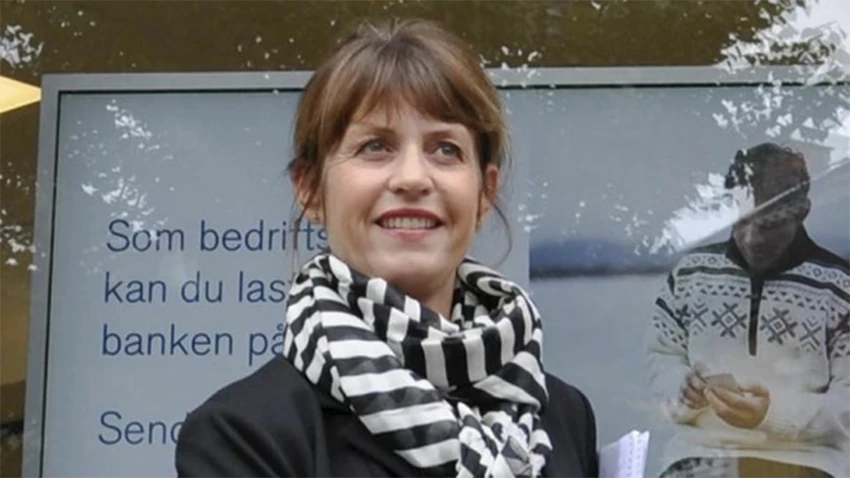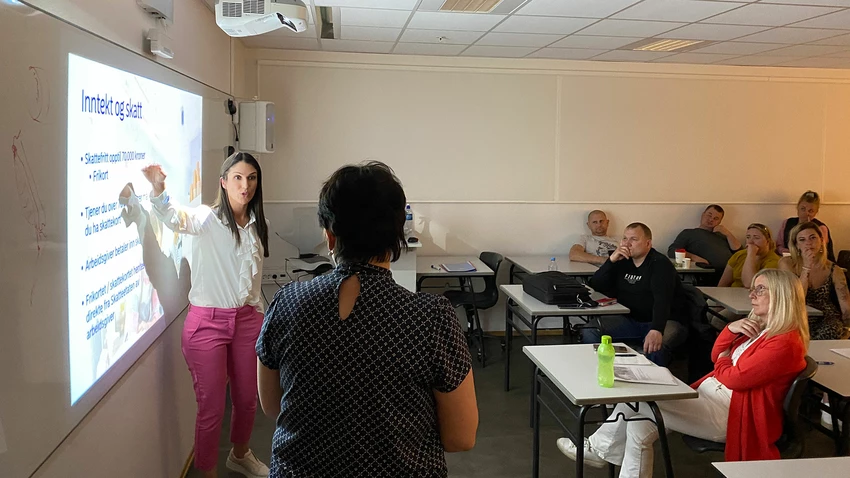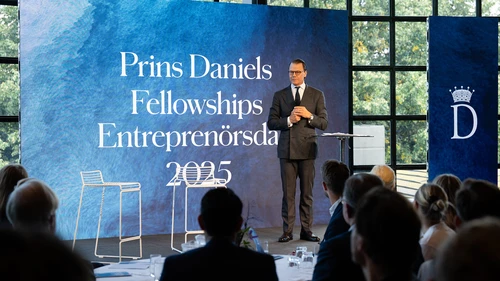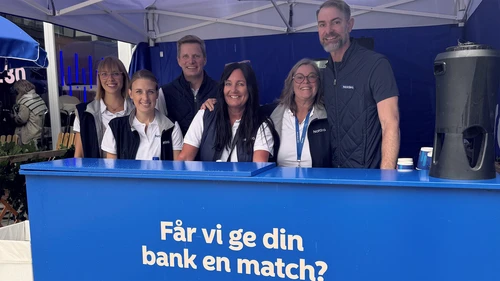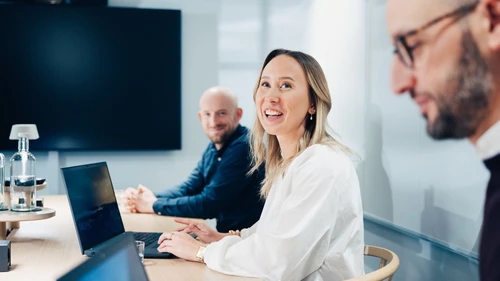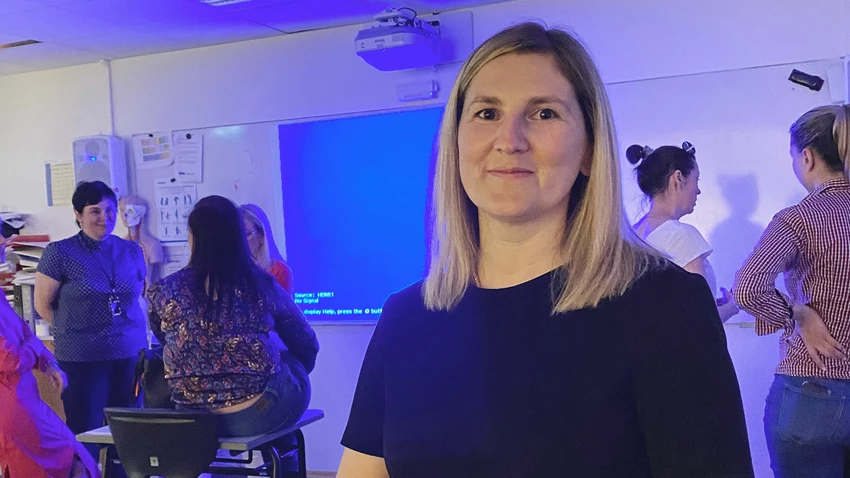
Victoria is one of 40 refugees who has recently participated in a pilot project in Hønefoss in Norway where Nordea has collaborated with the learning centre for adults as a part of Nordea’s refugee programme. She has lived in Hønefoss for nearly 14 months after fleeing to Norway because of the war in her home country Ukraine.
“I worked in a bank in Ukraine before the war started. My dream is to get the same type of job in Norway. I’m learning Norwegian now to qualify for this type of jobs,” says Victoria.
The participants were all Ukrainian refugees living in the municipality of Ringerike. They all have a Norwegian bank account, but none of them have permanent jobs yet. The training programme included information about how Norwegian banks work, how to set up a sole proprietorship, loan requirements, labour law and protection from financial crime. The course is called “Økonomipeil: Ny i Norge – Bank og økonomi.” (New in Norway – Bank and economy) and Nordea plans to roll out the course throughout Norway this year.
It all starts with a bank ID
Hanne Sommerstad, a Hønefoss local, was one of the course leaders. She has worked as both DNB’s and Nordea’s local branch manager in Hønefoss, has worked with anti-corruption and anti-money laundering in Nordea’s Business Risk Management unit and felt equipped for the task. During the course Hanne Sommerstad wondered if the participants had BankID. Half of them raised their hand, while the rest answered “no” or shook their head.
